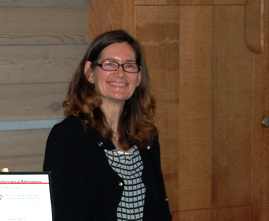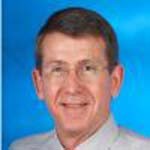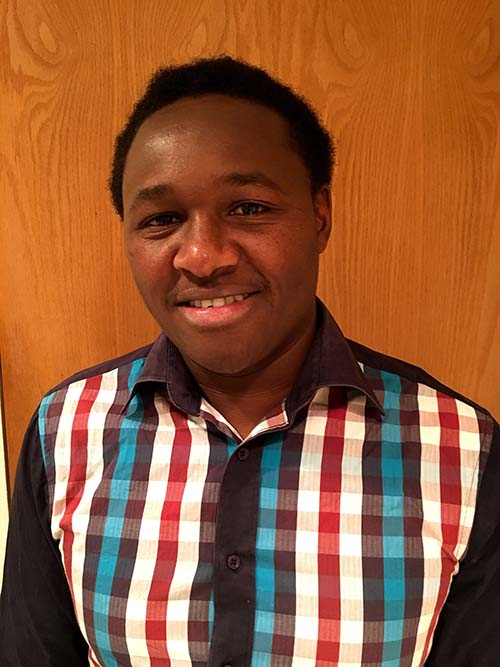Rita Irwin (Research Advisor)| Email: rita.irwin@ubc.ca
 Rita Irwin is a Professor of Curriculum Studies and Art Education, and Associate Dean of Teacher Education at the University of British Columbia. Rita has been an educational leader for a number of provincial, national and international organizations including being President of the Canadian Society for the Study of Education, Canadian Association of Curriculum Studies and the Canadian Society for Education through Art, and is the current President of the International Society for Education through Art. Her research interests have spanned in-service art education, teacher education, socio-cultural issues, and curriculum practices across K-12 and informal learning settings. Rita publishes widely, exhibits her artworks, and has secured a range of research grants, including a number of Social Science and Humanities Research Council of Canada grants to support her work in Canada, Australia, Taiwan, and beyond. Her most recent co-edited books include Revisions: Readings in Canadian Art Teacher Education (co-edited with Kit Grauer and Mike Emme) and Being with A/r/tography (co-edited with Stephanie Springgay, Carl Leggo, and Peter Gouzouasis). Rita is an artist, researcher, and teacher deeply committed to the arts and education. In recognition of her many accomplishments and commitments, she has received a number of awards for her scholarship, service and teaching including the distinction of Distinguished Fellow of the National Art Education Association in the USA, the Ted T. Aoki Award for Distinguished Service in Canadian Curriculum Studies (CACS), the Canadian Art Teacher of the Year Award (CSEA) and the Killam Award for Excellence in Mentoring (UBC).Research interests: Teacher education, teacher development, socio-cultural issues, international education, arts education, arts based research, a/r/tography.
Rita Irwin is a Professor of Curriculum Studies and Art Education, and Associate Dean of Teacher Education at the University of British Columbia. Rita has been an educational leader for a number of provincial, national and international organizations including being President of the Canadian Society for the Study of Education, Canadian Association of Curriculum Studies and the Canadian Society for Education through Art, and is the current President of the International Society for Education through Art. Her research interests have spanned in-service art education, teacher education, socio-cultural issues, and curriculum practices across K-12 and informal learning settings. Rita publishes widely, exhibits her artworks, and has secured a range of research grants, including a number of Social Science and Humanities Research Council of Canada grants to support her work in Canada, Australia, Taiwan, and beyond. Her most recent co-edited books include Revisions: Readings in Canadian Art Teacher Education (co-edited with Kit Grauer and Mike Emme) and Being with A/r/tography (co-edited with Stephanie Springgay, Carl Leggo, and Peter Gouzouasis). Rita is an artist, researcher, and teacher deeply committed to the arts and education. In recognition of her many accomplishments and commitments, she has received a number of awards for her scholarship, service and teaching including the distinction of Distinguished Fellow of the National Art Education Association in the USA, the Ted T. Aoki Award for Distinguished Service in Canadian Curriculum Studies (CACS), the Canadian Art Teacher of the Year Award (CSEA) and the Killam Award for Excellence in Mentoring (UBC).Research interests: Teacher education, teacher development, socio-cultural issues, international education, arts education, arts based research, a/r/tography.
Samson Nashon (Research Advisor)
 Samson Nashon is an Associate Director and Deputy Head in the Department of Curriculum and Pedagogy at the University of British Columbia. His research focuses on ways of teaching and learning. His area of specialization focuses on students’ alternative understandings that have roots in cultural backgrounds and curricula, and are accommodative of students with varying degrees of abilities. His research is dominantly qualitative, borrowing primarily from contemporary theories of constructivism. His most recent research projects include the ongoing Metacognition and Reflective Inquiry (MRI), East African Students’ Ways of Knowing (EASWOK), The Status of Physics 12 in BC, The Nature of Analogies Kenyan Physics Teachers Use, and Students’ Access To Senior Science and Mathematics Courses in Rural BC. Previous studies include, The Role of Practical Work in Science, and The Kind of Science in Kenyan “Harambee Schools.
Samson Nashon is an Associate Director and Deputy Head in the Department of Curriculum and Pedagogy at the University of British Columbia. His research focuses on ways of teaching and learning. His area of specialization focuses on students’ alternative understandings that have roots in cultural backgrounds and curricula, and are accommodative of students with varying degrees of abilities. His research is dominantly qualitative, borrowing primarily from contemporary theories of constructivism. His most recent research projects include the ongoing Metacognition and Reflective Inquiry (MRI), East African Students’ Ways of Knowing (EASWOK), The Status of Physics 12 in BC, The Nature of Analogies Kenyan Physics Teachers Use, and Students’ Access To Senior Science and Mathematics Courses in Rural BC. Previous studies include, The Role of Practical Work in Science, and The Kind of Science in Kenyan “Harambee Schools.
Dr. Nashon’s experience as a former high school teacher of physics and mathematics, teacher educator, and as an editor of curriculum materials related to science, provides him with a lens through which he examines the link between theory and practice in the classroom, the nature of science curricula, how the curricula material is taught, and the role that students’ preconceptions play in the teaching and learning of such material. He is currently involved in teaching a physics methods course to preservice teachers, Foundations Research Methods, Action Research Methods, and several science education courses to graduate students.
Cynthia Nichol (Research Advisor)
 Cynthia Nicol is an Associate Professor in the Department of Curriculum and Pedagogy in the UBC Faculty of Education. She lived and taught on Haida Gwaii in B.C.’s Pacific Northcoast before moving to Vancouver to pursue her doctoral studies. With teachers and communities she is exploring new ways of making mathematics responsive to all learners by connecting math, community and culture, emphasizing place and community-based education, and exploring social justice issues through mathematics. Her current projects focus on researching ways to support teachers interested in more culturally responsive teaching practices. This includes practices to better understand Aboriginal and non-Aboriginal relationships. She is also the PI on a SSHRC funded research projected titled Living, Learning and Teaching in a Refugee Camp focused on studying teacher learning within the Dadaab refugee camp. She has received awards for her scholarship including a Killam Research Fellowship and a Peter Wall Institute for Advanced Studies Early Career award. Cynthia’s research interests include participatory action research, teacher inquiry, mathematics education, teacher education, problem-based learning, place-based and community-based education, refugee education, Indigenous education, and culturally responsive teaching and research practices.
Cynthia Nicol is an Associate Professor in the Department of Curriculum and Pedagogy in the UBC Faculty of Education. She lived and taught on Haida Gwaii in B.C.’s Pacific Northcoast before moving to Vancouver to pursue her doctoral studies. With teachers and communities she is exploring new ways of making mathematics responsive to all learners by connecting math, community and culture, emphasizing place and community-based education, and exploring social justice issues through mathematics. Her current projects focus on researching ways to support teachers interested in more culturally responsive teaching practices. This includes practices to better understand Aboriginal and non-Aboriginal relationships. She is also the PI on a SSHRC funded research projected titled Living, Learning and Teaching in a Refugee Camp focused on studying teacher learning within the Dadaab refugee camp. She has received awards for her scholarship including a Killam Research Fellowship and a Peter Wall Institute for Advanced Studies Early Career award. Cynthia’s research interests include participatory action research, teacher inquiry, mathematics education, teacher education, problem-based learning, place-based and community-based education, refugee education, Indigenous education, and culturally responsive teaching and research practices.
Tom Sork (Research Advisor)
 Tom Sork was born in Orange, California. He grew up on a farm and lived in Huntington Beach until the age of 14 when his family moved to Dixon, California where he attended high school, graduating in 1966. He attended Colorado State University where he received a B.Sc. in Agriculture (Animal Sciences) in 1970. Upon graduation he began work as a conference coordinator in CSU’s Office of Conferences and Institutes, his first professional work experience as an adult educator. While working there he began a part-time masters program in adult and continuing education and graduated with an MEd in 1973. From 1973-1975 he completed coursework toward the PhD in adult education at Florida State University during which he was an intern with FSU’s Division of Continuing Education. From 1975-1977 he served as Assistant Director of Continuing Education at the University of North Carolina, Greensboro. During this time he also completed his doctoral thesis, graduating in 1978. His first full-time academic appointment was in the Department of Adult and Continuing Education at the University of Nebraska, Lincoln where he worked until 1981 when he accepted a position in the adult education program at the University of British Columbia where he currently teaches. His research and teaching focus on educational planning and professional ethics in adult education. His hobbies include various outdoor pursuits, photography and genealogy.
Tom Sork was born in Orange, California. He grew up on a farm and lived in Huntington Beach until the age of 14 when his family moved to Dixon, California where he attended high school, graduating in 1966. He attended Colorado State University where he received a B.Sc. in Agriculture (Animal Sciences) in 1970. Upon graduation he began work as a conference coordinator in CSU’s Office of Conferences and Institutes, his first professional work experience as an adult educator. While working there he began a part-time masters program in adult and continuing education and graduated with an MEd in 1973. From 1973-1975 he completed coursework toward the PhD in adult education at Florida State University during which he was an intern with FSU’s Division of Continuing Education. From 1975-1977 he served as Assistant Director of Continuing Education at the University of North Carolina, Greensboro. During this time he also completed his doctoral thesis, graduating in 1978. His first full-time academic appointment was in the Department of Adult and Continuing Education at the University of Nebraska, Lincoln where he worked until 1981 when he accepted a position in the adult education program at the University of British Columbia where he currently teaches. His research and teaching focus on educational planning and professional ethics in adult education. His hobbies include various outdoor pursuits, photography and genealogy.
Philip Kimani Karangu (Graduate Research Assistant)
 Philip Kimani Karangu was born and raised in Kenya. He completed his teaching certificate at Machakos Teacher’s Training College and his Bachelor of Education from Kenyatta University in 2013 with a focus in history and Kiswahili. Philip has taught in primary schools in Kenya and his last position was head teacher and Kiswahili teacher at a charity-run primary school. Philip is currently working on a Master of Arts in Curriculum Studies at UBC. His research during this degree will be focused on improving education in refugee camps, such as Dadaab.
Philip Kimani Karangu was born and raised in Kenya. He completed his teaching certificate at Machakos Teacher’s Training College and his Bachelor of Education from Kenyatta University in 2013 with a focus in history and Kiswahili. Philip has taught in primary schools in Kenya and his last position was head teacher and Kiswahili teacher at a charity-run primary school. Philip is currently working on a Master of Arts in Curriculum Studies at UBC. His research during this degree will be focused on improving education in refugee camps, such as Dadaab.



